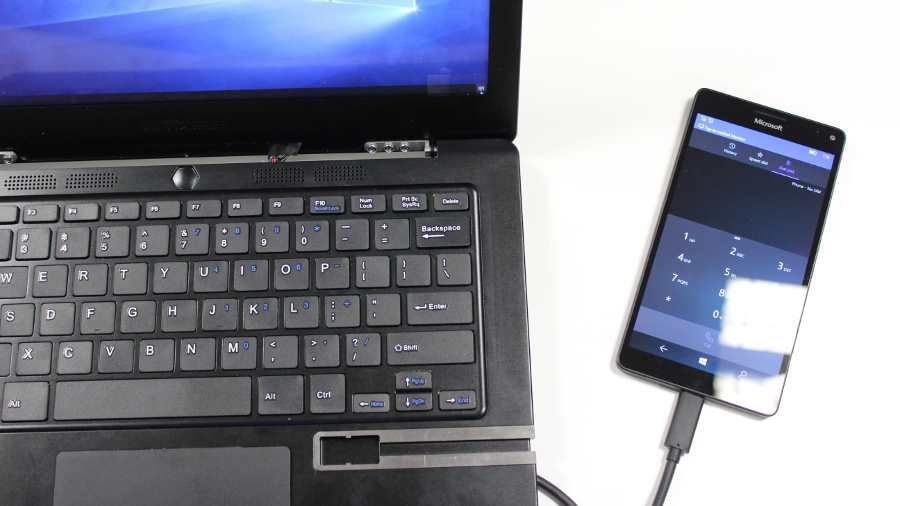Mirabook is a laptop which is powered by your smartphone
Boasts a 13.3-inch Full HD display along with a 24-hour battery

Sign up for breaking news, reviews, opinion, top tech deals, and more.
You are now subscribed
Your newsletter sign-up was successful
Smartphones are easily powerful enough to function as computers these days, and over at CES, a French company has revealed a shell of a laptop which effectively uses your handset as the processor.
The Mirabook from Miraxess is a notebook without any hardware innards, as the handset provides those vital components – although there is a battery on board.
This isn’t a new idea, mind, as a previous Kickstarter project called Superbook tried the same trick (which in turn followed in the footsteps of the HP Elite x3 with its Continuum-enabling dock).
At any rate, with the Mirabook you get a 13.3-inch Full HD display, and of course a keyboard and touchpad, along with a battery which can be used for up to 24 hours, and is capable of recharging your mobile.
There’s also storage on board the notebook, and you simply plug your phone in via USB-C and the display is replicated on the laptop’s screen.

Getting clever with Continuum
So you have a notebook to hand for serious productivity work which is obviously tricky to do on a small display. The device can use Continuum for Microsoft or Andromium for Android to provide an interface more suitable for desktop work.
Aside from the USB-C port, the aluminium Mirabook has an HDMI connector, SD card slot, and you get a pair of ‘premium’ speakers (or at least speakers which are better than your smartphone’s).
Sign up to the TechRadar Pro newsletter to get all the top news, opinion, features and guidance your business needs to succeed!
One of the chief attractions of this concept is the idea of getting a cheap laptop because you’re using your phone as the actual hardware, although rather disappointingly the crowd-funded Mirabook is going to be considerably more expensive than the Superbook – it’s set to be priced at €299 (around £255, AU$430).
The Superbook is pitched at around the $100 (about £80, AU$140) level, which makes more sense as a tempting budget option.
- New year, new tech – check out all our coverage of CES 2017 straight from Las Vegas, the greatest gadget show on Earth
Darren is a freelancer writing news and features for TechRadar (and occasionally T3) across a broad range of computing topics including CPUs, GPUs, various other hardware, VPNs, antivirus and more. He has written about tech for the best part of three decades, and writes books in his spare time (his debut novel - 'I Know What You Did Last Supper' - was published by Hachette UK in 2013).